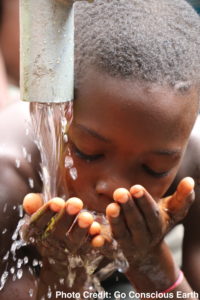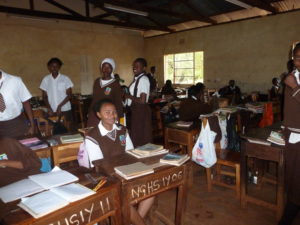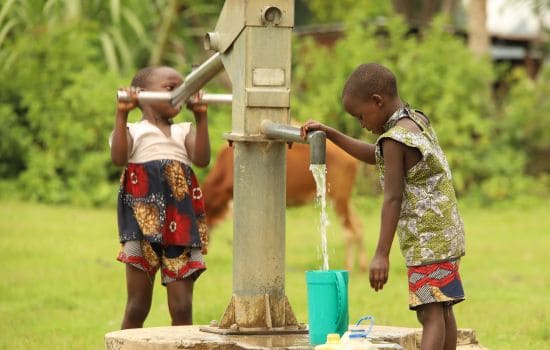This is an archived post from 2018 — before the electric option was added with the Village Drill Hybrid. Specs and other information in this post may be outdated.
Why is water the first thing communities need?
Clean water is the essential first step towards eliminating poverty. Currently, over 1 billion people outside of the United States do not have access to clean water.[i] That’s 1,000,000,000 people without access to safe water. According to WHOlives’ research,
“There are no examples of communities that have eliminated poverty without first solving their scarce and contaminated water issues.”[ii]
Safe, accessible water is the first thing a developing community needs because it improves health, education opportunities, and economic growth.
Health
Access to clean water improves community health by preventing the spread of diseases and improving sanitation. Diarrhea, cholera, typhoid, trachoma, and many other diseases are caused by bacteria and viruses in contaminated drinking water.[iii] Between 3 to 5 million people around the world die each year from water related diseases.[iv] With worldwide access to clean drinking water, these diseases can be eradicated and millions of people saved.

In addition, safe water used to clean homes and medical clinics prevents the spread of disease from one person to another. Accessible clean water makes basic sanitation practices, such as handwashing and bathing, possible. By enabling access to clean water in rural areas, The Village Drill improves community health and saves lives.
Education
Clean and accessible water increases the number of children, especially girls, who can regularly attend school. Rather than spend several hours each day carrying water to their homes, children can attend school. In areas where water is not easily accessible, 1 in 4 girls do not complete primary school (compared to 1 in 7 boys).[v] When clean water is accessible at or near the school, girls can attend school while menstruating. Thus, the Village Drill increases education in communities by enabling all children to regularly attend school.

Economic growth
When clean water is readily available, individuals (especially women) can spend more of their time and energy working instead of carrying water to their homes. In Africa, Asia, Latin America, the Caribbean, and Eastern Europe, women and girls are disproportionately responsible water collection.[vi] Improved health also increases economic growth. As a result of better health, individuals can spend more time working rather than recovering from illness. More working days leads to economic growth. In addition, this means that individuals can spend their money on food, starting a business, or other needs rather than on health care.

Access to water for irrigation enables communities to grow and harvest more crops, including during the dry season. The Village Drill increases economic growth by empowering communities to use their time and energy on economically productive activities rather than transporting water.
[i] https://www.unicef.org/education/index_focus_water.html
[ii] http://wholives.org/our-mission/village-drill/
[iii] https://www.unicef.org/wash/index_wes_related.html
[iv] http://www.who.int/water_sanitation_health/takingcharge.html and http://pacinst.org/reports/water_related_deaths/water_related_deaths_report.pdf
[v] https://www.unicef.org/wash/schools/files/Advancing_WASH_in_Schools_Monitoring(1).pdf

